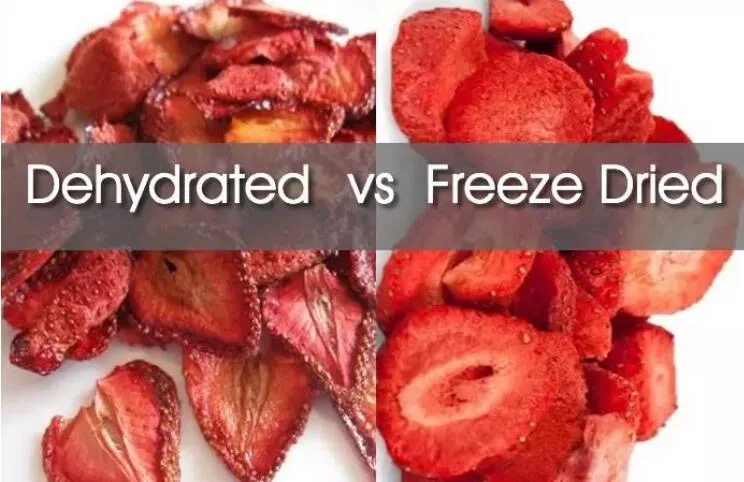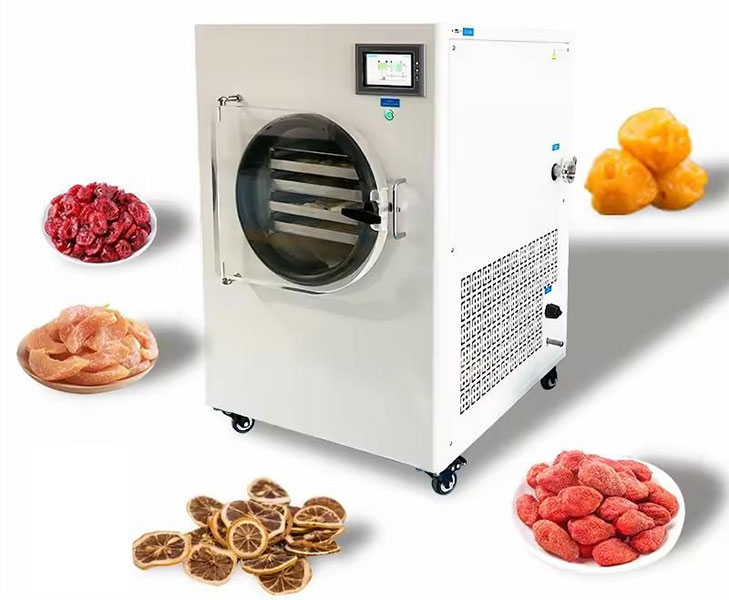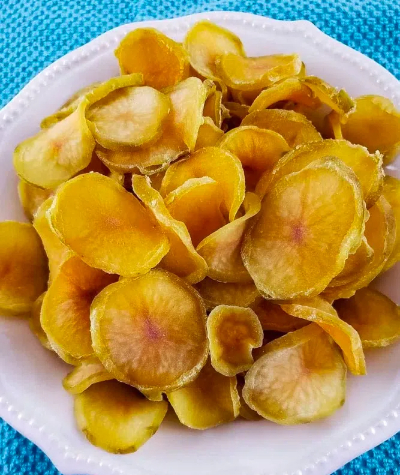
Content Menu
● Understanding Food Dehydrators
>> How Do Food Dehydrators Work?
● Benefits of Using a Food Dehydrator
● Exploring Freeze Dryers
>> How Do Freeze Dryers Work?
● Benefits of Using a Freeze Dryer
● Comparing Food Dehydrators and Freeze Dryers
● Choosing Between a Food Dehydrator and a Freeze Dryer
● Nutritional Value Comparison
● Practical Applications
● Common Mistakes When Using Each Method
>> Mistakes with Food Dehydrators:
>> Mistakes with Freeze Dryers:
● Conclusion
● FAQ
>> 1. What is the main difference between a food dehydrator and a freeze dryer?
>> 2. How long do foods last when dried using each method?
>> 3. Can I use both methods for the same type of food?
>> 4. Are there specific foods that should not be dried?
>> 5. How do I store dried foods properly?
● Citations:
Food preservation has evolved significantly over the years, with various methods available to extend the shelf life of our food. Among these methods, food dehydrators and freeze dryers are two popular options. While both serve the purpose of removing moisture from food to prevent spoilage, they operate on different principles and yield different results. This article will explore the differences between food dehydrators and freeze dryers, their respective benefits, and how to choose the right one for your needs.

Understanding Food Dehydrators
A food dehydrator is an appliance designed to remove moisture from food through a controlled heat process. It typically consists of several trays where food is placed, a heating element, and a fan that circulates hot air around the food. This method allows for even drying without cooking the food.
How Do Food Dehydrators Work?
The working principle of a dehydrator involves:
- Circulation of Hot Air: The heating element generates hot air, which is circulated by a fan. This hot air passes over the food, evaporating moisture.
- Temperature Control: Different foods require different temperatures for optimal drying. Most dehydrators operate between 85°F to 160°F (29°C to 71°C), allowing for precise control.
- Humidity Control: Some advanced models include features to monitor and adjust humidity levels in the drying chamber.
- Ventilation: Proper airflow is crucial for effective dehydration. Vents allow moist air to escape while drawing in dry air.
Benefits of Using a Food Dehydrator
Using a food dehydrator offers several advantages:
- Extended Shelf Life: Dehydrated foods can last for months or even years when stored properly, making them ideal for long-term storage.
- Nutritional Retention: Dehydration preserves most of the nutrients in fruits and vegetables, making them healthier than many processed snacks.
- Cost-Effective: By purchasing seasonal produce in bulk and dehydrating it, you can save money and reduce waste.
- Versatility: Dehydrators can be used for various foods, including fruits, vegetables, meats (like jerky), and herbs.
- Space Saving: Dehydrated food takes up much less storage space. This compactness is beneficial for both pantry storage and for hiking and camping food supplies.
Exploring Freeze Dryers
In contrast to dehydrators, freeze dryers utilize a more complex process called lyophilization. This method involves freezing the food at extremely low temperatures and then reducing pressure in a vacuum chamber to allow frozen water in the food to sublimate directly into vapor without passing through a liquid phase.

How Do Freeze Dryers Work?
The freeze-drying process includes several steps:
1. Freezing: The food is rapidly frozen to temperatures as low as -40°F (-40°C).
2. Vacuum Application: The vacuum chamber lowers atmospheric pressure, allowing ice to turn into vapor without melting.
3. Sublimation: The moisture is removed from the food while retaining its structure, flavor, and nutritional content.
4. Secondary Drying: After sublimation, residual moisture is removed through a secondary drying phase that further enhances shelf life.
Benefits of Using a Freeze Dryer
Freeze dryers provide unique benefits that differentiate them from dehydrators:
- Longer Shelf Life: Freeze-dried foods can last up to 25 years when stored correctly due to their extremely low moisture content.
- Nutrient Preservation: The freeze-drying process retains up to 97% of nutrients compared to dehydrating methods that may lose some vitamins.
- Texture Retention: Freeze-dried foods maintain their original shape and texture better than dehydrated foods, making them more appealing when rehydrated.
- Lightweight: Removing almost all moisture makes freeze-dried foods extremely light, which is perfect for backpacking, camping, and space travel.
Comparing Food Dehydrators and Freeze Dryers
To better understand the differences between these two methods, consider the following comparison:
| Feature | Food Dehydrator | Freeze Dryer |
| Process | Uses heat to remove moisture | Freezes food then sublimates ice |
| Nutrient Retention | Moderate (some loss) | High (up to 97% retained) |
| Shelf Life | Months to 1 year | Up to 25 years |
| Cost | Generally lower | Higher initial investment |
| Complexity | Simple operation | More complex setup |
| Best For | Snacks like jerky and fruit leathers | Long-term storage of various foods |
Choosing Between a Food Dehydrator and a Freeze Dryer
The decision on whether to use a food dehydrator or a freeze dryer depends on several factors:
- Budget: If you're looking for an affordable option, dehydrators are significantly less expensive than freeze dryers.
- Intended Use: For casual users who want to make snacks or preserve seasonal produce, a dehydrator is sufficient. However, if you're interested in long-term storage or preserving delicate items like berries or meals for emergencies, investing in a freeze dryer may be worthwhile.
- Space Considerations: Freeze dryers tend to be larger and require more space compared to most dehydrators.
Nutritional Value Comparison
One of the most significant aspects when comparing these two methods is their impact on nutritional value:
- Dehydration Process: Typically removes about 90% of moisture but can lead to nutrient loss due to heat exposure. Vitamins such as Vitamin C are particularly sensitive and can degrade during this process.
- Freeze-Drying Process: Retains approximately 97% of nutrients because it operates at low temperatures without using heat that can destroy sensitive vitamins. This makes freeze-dried foods often more nutritious than their dehydrated counterparts.
Practical Applications
Both methods have practical applications depending on what you intend to preserve:
- Food Dehydrators:
- Ideal for creating snacks such as fruit leathers or jerky.
- Can be used effectively for herbs and spices.
- Suitable for bulk processing of seasonal fruits and vegetables into dried snacks or ingredients for baking.
- Freeze Dryers:
- Excellent for preserving complete meals; you can take leftovers from dinner and freeze-dry them.
- Perfect for high-moisture items like strawberries or tomatoes.
- Often used in emergency preparedness kits due to their long shelf life.
Common Mistakes When Using Each Method
Understanding common mistakes can enhance your experience with either appliance:
Mistakes with Food Dehydrators:
1. Not slicing food evenly can lead to inconsistent drying.
2. Overloading trays prevents proper airflow.
3. Ignoring temperature settings may result in under or over-drying foods.
Mistakes with Freeze Dryers:
1. Overloading trays can lead to uneven drying.
2. Not pre-freezing certain items may result in poor texture.
3. Failing to clean the machine after each use can lead to clogs and inefficient operation.
Conclusion
Both food dehydrators and freeze dryers have their unique advantages and serve different purposes in food preservation. While dehydrators are ideal for making snacks and extending shelf life at a lower cost, freeze dryers excel in preserving nutrients and extending shelf life significantly longer. Understanding your needs will help you choose the right appliance for your kitchen based on budget, intended use, space considerations, and desired nutritional retention.

FAQ
1. What is the main difference between a food dehydrator and a freeze dryer?
The primary difference lies in their processes; dehydrators use heat to remove moisture while freeze dryers freeze the food and then sublimate ice into vapor under vacuum conditions.
2. How long do foods last when dried using each method?
Dehydrated foods typically last several months up to one year, whereas freeze-dried foods can last up to 25 years when stored properly.
3. Can I use both methods for the same type of food?
Yes, both methods can be used for fruits, vegetables, meats, and herbs; however, the results will differ in texture and nutrient retention.
4. Are there specific foods that should not be dried?
High-fat foods like avocados or peanut butter do not dehydrate well because fats can go rancid during storage.
5. How do I store dried foods properly?
Store dried foods in airtight containers in a cool, dark place. For longer shelf life, consider vacuum sealing them.
Citations:
[1] https://greenthumbdepot.com/blogs/guides/food-dehydrator-vs-freeze-dryer
[2] https://www.youtube.com/watch?v=r4GJe4Csx9k
[3] https://kanpaifoods.com/blogs/news/freeze-dry-vs-dehydrated-foods-comparing-preservation-methods
[4] https://thereadystore.com/a/blog/post/dehydrated-vs-freeze-dried-food
[5] https://www.lanphanfreezedrying.com/common-mistakes-to-avoid-when-freeze-drying-food/
[6] https://www.lowes.com/n/buying-guide/freeze-dryer-vs-dehydrator
[7] https://candyjan.com/blogs/news/can-you-make-freeze-dried-candy-in-a-dehydrator
[8] https://extension.umn.edu/preserving-and-preparing/freeze-drying-food
[9] https://www.reddit.com/r/trailmeals/comments/l4lr21/nutritional_value_of_dehydrated_vs_freeze_dried/
[10] https://sedpharma.com/news-events/freeze-dryer-vs-dehydrator/
[11] https://sweetytreatyco.com/blogs/news/freeze-dried-vs-dehydrated-understanding-food-preservation
[12] https://www.barnalab.com/en/blog/difference-between-dehydration-and-freeze-drying/
[13] https://www.thedailymeal.com/1525026/mistakes-freeze-drying-foods/
[14] https://harvestright.com/freeze-drying-vs-dehydrating/
[15] https://www.youtube.com/watch?v=ynTZf-CbE1A
[16] https://www.in.gov/health/food-protection/files/Freeze-Dry-Presentation,-Parts-I-and-II-FINAL.pdf
[17] https://harvestright.com/blog/2016/freeze-dried-food-versus-dehydrated-food-whats-the-difference/
[18] https://candyjan.com/blogs/news/10-freeze-drying-mistakes-youll-want-to-avoid
[19] https://extension.psu.edu/lets-preserve-freeze-drying
[20] https://www.familysurvivalplanning.com/real-facts-about-freeze-dried-dehydrated-foods.html
[21] https://empiredrying.com/freeze-drying-problems-and-mistakes/
[22] http://www.bccdc.ca/resource-gallery/Documents/Educational%20Materials/EH/FPS/Fruit%20and%20Veg/DehydratedOrFreezeDriedVegFruit.pdf
[23] https://homesteadingfamily.com/freeze-dried-vs-dehydrated-foods/
[24] https://www.healthline.com/nutrition/dehydrated-food
[25] https://vikumer.com/mistakes-when-use-freeze-dryer/
[26] https://misterchef.co.uk/how-to-freeze-dry-candy-with-a-dehydrator/











